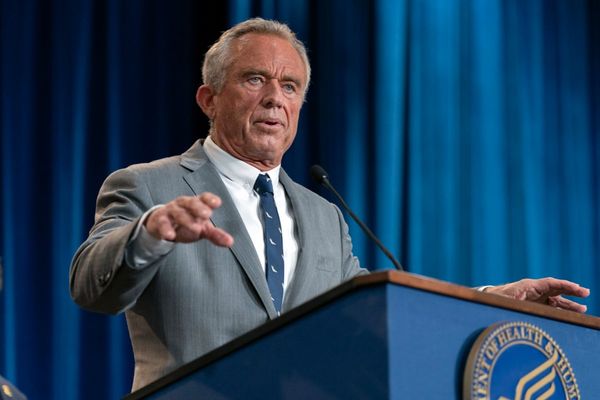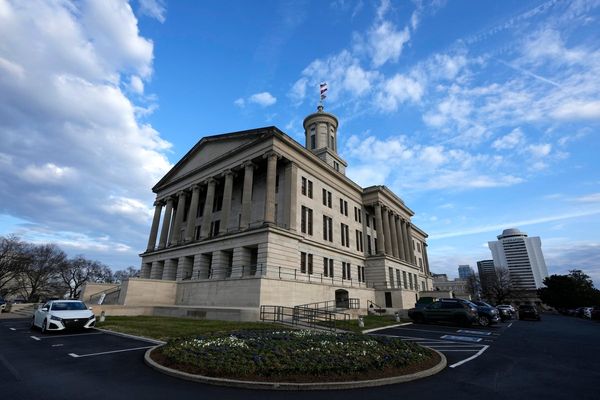
- A Boeing jet at the company’s completion plant in China flew back to the U.S. on Friday, according to reports. The new plane was supposed to be delivered to a Chinese airline, however, it was never handed over. Earlier this week, the Chinese government reportedly told airlines not to buy new jets from Boeing and to get permission before accepting any planes it had already ordered but hadn’t been delivered yet.
A brand-new Boeing jet is caught up in the trade war between China and the U.S.
The plane arrived at Boeing’s China facility in Zhoushan, but had to return to the U.S. shortly after, according to trade publication The Air Current. With the U.S. and China locked in a trade war that pits the world’s two largest economies against each other, companies like Boeing that do business in both countries find themselves caught in the crosshairs. Earlier this week, Bloomberg reported Chinese government officials had instructed domestic airlines not to order any new aircraft from Boeing and to seek approval before taking any already ordered planes.
The plane that reportedly returned to the U.S. from the completion plant in Zhoushan is one of three 737 Max jets that arrived since March, according to Reuters. At its Zhoushan facility in eastern China (about a three and a half hour drive from Shanghai), Boeing applies the finishing touches to already constructed aircraft, installing seats and painting the exterior. The fate of the other planes located at the Zhoushan facility was not immediately clear.
On Thursday, a spokesperson for the Ministry of Foreign Affairs of the People’s Republic of China told reporters they were “not familiar” with the reports of a stop to Boeing orders.
Even before being reportedly targeted by the Chinese government, Boeing faced potentially crippling cost increases from the U.S.-China tit-for-tat tariffs. With one of the most complex supply chains in the world, input costs in the U.S. risked soaring because of tariffs on any of its imported parts, of which there are many.
At the same time, China’s retaliatory tariffs of 125% on U.S. goods meant Boeing’s planes would be prohibitively expensive for Chinese airlines. In an address to employees in March—a month before President Donald Trump announced his sweeping tariff policy—Boeing CEO Kelly Ortberg had warned they could drive up costs and disrupt the company’s complex, carefully managed supply chain.
At a Senate hearing earlier this month, Ortberg reiterated the damage that widespread tariffs could have on Boeing’s business. Ortberg emphasized that Boeing sourced parts from around the world and sold the vast majority of its planes abroad. Boeing risked being doubly harmed by tariffs as its own costs would rise while its sales would fall.
“Free trade is very important to us,” Ortberg told the Senate Commerce, Science, and Transportation Committee this month. ”It’s important that we continue to have access to that market and that we don’t get in a situation where certain markets become closed to us.”
Boeing did not respond to Fortune’s request for comment.
As one of the fastest-growing air travel markets in the world, China represents a lucrative opportunity for Boeing. In September 2023, Boeing forecasted that over the next 20 years China would account for 20% of the world’s air travel and double its fleet of commercial planes to roughly 9,600 jets. In 2018, when Boeing opened its Zhoushan facility amid a previous trade skirmish between the U.S. and China, executives had touted aviation as a “bright spot” of trade between the two countries.
But virtually no companies have been spared during this round of the U.S.-China trade war—least of all industrial giants. Boeing’s stock fell 17% in the two days immediately after Trump introduced his tariff policy on April 2. Its stock has mostly recovered since that initial hit. However, it fell 2.5% the day it was reported China had ordered a halt on orders of new planes.
Working in Boeing’s favor is its role as a genuine American manufacturing powerhouse, the exact sort of business the Trump administration claims it is intent on protecting.
“The Trump administration can’t ignore Boeing,” wrote Bank of America aerospace analyst Ronald Epstein this week.
So far that appears to be true. Boeing’s reported issues with Chinese deliveries caught the president’s attention.
China “just reneged on the big Boeing deal, saying that they will ‘not take possession’ of fully committed to aircraft,” Trump wrote in a social media post on Tuesday.







